Contributors
Ruggero Bianchin
"William Dunbar's Tretis of the Tua Mariit Wemen and the 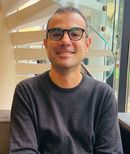 Wedo in Italian and French translations"
Wedo in Italian and French translations"
Ruggero Bianchin is a PhD candidate in English Language & Linguistics at the University of Glasgow. His research investigates how poetry written in Older Scots has been translated in Romance languages, with a particular focus on register variation. For his MA thesis, presented at Università degli studi Roma Tre in Rome, he completed a full Italian translation of Richard Holland's The Buke of the Howlat. He is currently a Graduate Teaching Assistant at the University of Glasgow.

Karin Bosshard is a PhD candidate in Translation Studies at the University of Edinburgh. Her doctoral research focuses on literary translation and on how translation theory and translation practice inform each other. In her thesis, she investigates linguistic variation in contemporary Scottish fiction and ways such variation can be rendered in translation. Karin is also an experienced freelance translator (English/French – German) and currently teaches translation theory and translation technology in her role as a Teaching Fellow at the University of Edinburgh.
Kevin Buckley
"Uncovering linguistic lineage through using a character n-gram based dialect classifier"
I am a PhD researcher at Newcastle University. My PhD is attempting to use quantitative methods to detect changing linguistic features over time, in the context of Old French in England. The project is trying to develop methods to spot signifying features of Old French dialects and measure how these change over time and over geography.
Originally I began in Psychology and Neuroscience. When I began studying Linguistics, I wanted to continue with the quantitative and statistical style I became familiar with in Psychology. So in my Masters dissertation at Trinity College Dublin, I used a computational method to quantify change in and between Historical English and French over time. Thereby I attempted to quantify the growth in similarity between the two languages in the period after the Norman conquest.
This current project, presented here analyzing Middle English, continues on this trend, in applying quantitive tools to quickly analyze text in a a bottom-up manner.
Persjin Marius de Rijke
"'[T]he largest mountan in nort america:' Evidence of 'Southern' Irish English conson ants in Ulster before 1900 in the Corpus of Irish English Correspondence"
ants in Ulster before 1900 in the Corpus of Irish English Correspondence"
Persijn M. de Rijke is an associate teaching professor at the University of Bergen where he teaches sociolinguistics. He also teaches upper-secondary courses in English and history for adult learners at Oslo VO Sinsen. His research focusses on phonological representation in historical ego-documents.
Christine Elsweiler
"Towards a speech act annotation scheme for 18th-century Scottish letters"
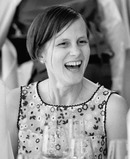
Christine Elsweiler is a lecturer at LMU Munich. She received her PhD from the University of Erlangen in 2009. In 2019 she completed her habilitation project entitled "From Shared Meaning to Divergent Pragmatics: A Comparative Study of the Modal Auxiliaries May, Can, Shall and Will in Scottish and English Letters (1500–1700)". Her research covers language variation and change in different historical periods of English, from early Middle English up to Late Modern English. She specialises in Scots and its historical stages, also from a comparative perspective with other varieties of English, focussing in particular on the intersection between Historical Pragmatics and Historical Sociolinguistics. In her current project, she is going to develop a speech act annotation scheme for a corpus of 18th-century Scottish letters.
Lisa Gotthard
"The Scots Northern Subject Rule in contact"
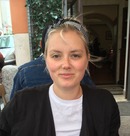
I am a final-year PhD student at the Unversity of Edinburgh. My PhD project explores syntactic developments in Scots during the anglicisation period (16th-18th century), and I have syntactically annotated the Helsinki Corpus of Scottish Correspondence, a corpus of personal letters dated from 1540 to 1750. So far, I have mainly been exploring differences and changes in subject-verb agreement strategies in Scots compared to English.
My research interests involve syntactic outcomes of contact between closely related languages, which is why I find the contact between Scots and English during the anglicisation period a fascinating topic of study. I am also very interested in topics concerning the status of Scots in Scotland today, and like to be involved in public engagement events to promote awareness of Scots and research on Scots.
Pavel Iosad
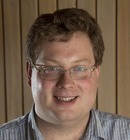
"Acoustic correlates of the fortis/lenis distinction in early 20th century Donegal Irish"
Pavel Iosad is Senior Lecturer in Linguistics and English Language at the University of Edinburgh. He holds degrees from Moscow State University and the University of Tromsø, and was Lecturer in Language and Linguistics at Ulster University. His primary area of interest is theoretical and historical phonology, with a focus on Celtic, Germanic, Slavic, and Romance languages. Currently he is completing a monograph on areal features in the phonology of the languages of north-western Europe.
John Kirk
"The Digital Lexical Atlas of Scotland: An Introduction and some First Results"
John Kirk is an External Professor in English Linguistics at the University of Vienna and holds similar appointments at theUniversity of Graz and the University of Klagenfurt. From 1983-2013, he was a Lecturer, later Senior Lecturer in English atQueen’s University Belfast, where with Jeff Kallen he compiled the Irish component of the International Corpus of English and its daughter corpus, the prosodically and pragmatically-annotated SPICE-Ireland Corpus. His PhD thesis, on the morpho-syntax of the verb phrase in Scots, was based on a small corpus of contemporary dramatic texts, which has recently been expanded to some 30 texts (and 500,000 words) for an investigation into pragmatic discourse markers. His other current research project on Scots is the Digitised Lexical Atlas of Scotland, which is being conducted with a small team of collaborators including Markus Pluschkovits, with whom he will introduce the new corpus and present some preliminary studies.
Kirk is an External Professor in English Linguistics at the University of Vienna and holds similar appointments at theUniversity of Graz and the University of Klagenfurt. From 1983-2013, he was a Lecturer, later Senior Lecturer in English atQueen’s University Belfast, where with Jeff Kallen he compiled the Irish component of the International Corpus of English and its daughter corpus, the prosodically and pragmatically-annotated SPICE-Ireland Corpus. His PhD thesis, on the morpho-syntax of the verb phrase in Scots, was based on a small corpus of contemporary dramatic texts, which has recently been expanded to some 30 texts (and 500,000 words) for an investigation into pragmatic discourse markers. His other current research project on Scots is the Digitised Lexical Atlas of Scotland, which is being conducted with a small team of collaborators including Markus Pluschkovits, with whom he will introduce the new corpus and present some preliminary studies.
Joanna Kopaczyk
"How to approach pre-modern multilingualism in Scotland?" (SLACK discussion)
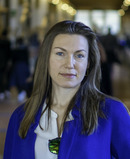 Joanna Kopaczyk is Senior Lecturer in Scots and English at the University of Glasgow and the Chair of the Forum for Research on the Languages of Scotland and Ulster. She is a historical linguist with an interest in corpus methods, formulaic language, the history of Scots and historical multilingualism. Her most recent co-edited collections include Language on the move across domains and communities (FRLSU 2020), Historical dialectology in the digital age (Edinburgh University Press, 2019) and Applications of pattern-driven methods in corpus linguistics (John Benjamins, 2018). She has also published on The legal language of Scottish burghs (Oxford University Press, 2013) and co-edited Binomials in the history of English (Cambridge University Press, 2017) and Communities of practice in the history of English (John Benjamins, 2013).
Joanna Kopaczyk is Senior Lecturer in Scots and English at the University of Glasgow and the Chair of the Forum for Research on the Languages of Scotland and Ulster. She is a historical linguist with an interest in corpus methods, formulaic language, the history of Scots and historical multilingualism. Her most recent co-edited collections include Language on the move across domains and communities (FRLSU 2020), Historical dialectology in the digital age (Edinburgh University Press, 2019) and Applications of pattern-driven methods in corpus linguistics (John Benjamins, 2018). She has also published on The legal language of Scottish burghs (Oxford University Press, 2013) and co-edited Binomials in the history of English (Cambridge University Press, 2017) and Communities of practice in the history of English (John Benjamins, 2013).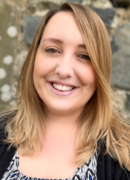
Dawn Leslie is a Lecturer in Language & Linguistics at the University of Aberdeen. Her main
area of research is perceptual dialectology, with a particular interest in attitudes towards language variation and change within the Scots-speaking community.
Ragnhild Ljosland
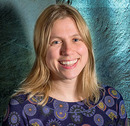
Ragnhild Ljosland is a sociolinguist with an interest in culture and heritage, affiliated with the University of the Highlands and Islands Archaeology Institute and the UHI Language Sciences Institute. Her research concerns on the discursive construction of imagined communities and latterly the narrative construction of heritage. Her PhD (2008) and early career research investigated the role ascribed to the English language in research and higher education in non-English speaking countries, thinking especially of how English functions not only as a lingua franca but also as a signifier of group membership within transnational specialist communities, and as a signal of aspirations to participate in a globalised higher education "market". More recent research includes wider aspects of linguistic and cultural history and heritage, with a particular interest in Scotland, Orkney, and Shetland. Areas include sociolinguistic aspects of the post-medieval Norn to Scots language shift, Orkney and Shetland dialect and dialect literature, the rhetoric of support for Scots as a language within the context of the Scottish independence movement, and the narratives of heritage, but also runic inscriptions and Norse culture and its legacy today.
"Eppie Elrick, a Doric tour-de-force"
Born 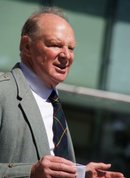 Ayr 1944, educated Ayr Academy, Glasgow University, Edinburgh University. Taught University of Tübingen (1968-69), University of Ottawa (1970-72), University of Aberdeen (1972-2009). Served as Chairman of ASLS Language Committee, FRLSU, Ministerial Advisory Group on the Scots Language. Publications include three monographs, a collection of articles, thirteen singly or jointly edited multi-author volumes, an annotated anthology of modern Scots poetry, over 120 refereed articles and conference papers on assorted Scottish literary and linguistic topics and translations from, among others, Lewis Carroll, Antoine Sainte-Éxupéry, Sorley McLean, Angus Peter Campbell, Cecco Angiolieri, Frédéric Mistral, Alfred Kolleritsch, Charles Baudelaire, Jorge Luis Borges, Heinrich Heine, Adam Mickiewicz and William Shakespeare. In 2002 awarded an MBE for services to Scottish culture.
Ayr 1944, educated Ayr Academy, Glasgow University, Edinburgh University. Taught University of Tübingen (1968-69), University of Ottawa (1970-72), University of Aberdeen (1972-2009). Served as Chairman of ASLS Language Committee, FRLSU, Ministerial Advisory Group on the Scots Language. Publications include three monographs, a collection of articles, thirteen singly or jointly edited multi-author volumes, an annotated anthology of modern Scots poetry, over 120 refereed articles and conference papers on assorted Scottish literary and linguistic topics and translations from, among others, Lewis Carroll, Antoine Sainte-Éxupéry, Sorley McLean, Angus Peter Campbell, Cecco Angiolieri, Frédéric Mistral, Alfred Kolleritsch, Charles Baudelaire, Jorge Luis Borges, Heinrich Heine, Adam Mickiewicz and William Shakespeare. In 2002 awarded an MBE for services to Scottish culture.
Robert McColl Millar
Robert McColl Millar is Professor in Linguistics and Scottish Language at the University of Aberdeen. His most recent books include Modern Scots (2018) and A Sociolinguistic History of Scotland (2020). He is presently completing The Oxford History of the Scots Language.
James McDonald
"The Native and non-native linguists in Réunion and Scotland"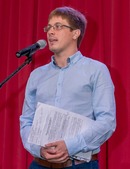
James Scott McDonald is a PhD student in linguistics with LCF at the Université de La Réunion. His thesis work compares the sociolinguistic contexts of Scotland and Réunion. This concerns similarities and contrasts between the relationship between the local languages, Scots and Gaelic, and English in Scotland and the local language, Réunionese Creole, and French in Réunion. His Masters thesis dealt with the lexis of Réunionese Creole of Malagasy origin.
He will present a communication comparing the native and non-native scholars of the local languages in these two territories.
Wilson McLeod
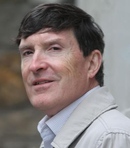
"Assessing and amending the Gaelic Language (Scotland) Act 2005"
Wilson McLeod is Professor of Gaelic at the University of Edinburgh. His most recent publications are Gaelic in Scotland: Policies, Movements, Ideologies (2020), Language Revitalisation and SocialTransformation (co-edited with Huw Lewis, 2021) and Transmitting Minority Languages: Complementary Reversing Language Shift Strategies (co-edited with Michael Hornsby, forthcoming).
Claire Needler
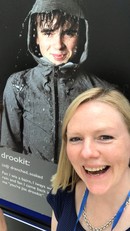
Claire Needler is an Ethnology PhD student in the Elphinstone Institute, University of Aberdeen. Her current research area is contemporary use of the Scots language among young people in the North-East of Scotland. She is particularly interestedin changing attitudes towards Scots through education using creative methodologies and Participatory Action Research (PAR).
Having worked as a lexicographer and a community educator, working in partnership with Banff Academy’s Scots Language class has enabled her to combine her interest in working with words and with people, with a strong underpinning of social justice.
Peadar Ó Muircheartaigh
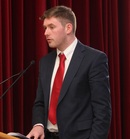
"The Empire Writes Back: English-Gaelic code-switching in a letter from New York 1778"
Peadar is lecturer in Celtic Studies at Aberystwyth University and currently a Research Fellow at the Arnamagnæan Institute at the University of Copenhagen. Works on the historical linguistics of the Gaelic languages and has a special interest in the eighteenth century.
Alexander Pavlenko
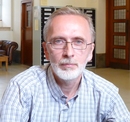
Alexander Pavlenko is professor of the department of English at A.P. Chekhov Institute of Taganrog (a branch of Rostov State University of Economics), where he is in charge of the MA programme in Foreign Languages in the Context of Modern Culture. He holds a doctoral and a postdoctoral degree from the Institute for Linguistic Studies (the Russian Academy of Sciences) in St. Petersburg. His research focuses on diachronic sociolinguistics, sociolinguistic comparisons and typologies also paying attention to sociolinguistic parallels between the Slavic languages and the languages of Scotland and Northern Ireland. Among his more specific research projects there have been a description of Scottish – Ukrainian Sociolinguistic Parallels (2006) and a search for a Scottish Trace in the Russian Toponymy (2012). Both of them were supported by RSE/CRF grants. Currently involved in a research project The Polyphony of the Semantic Subject (focus on: the Russian, French, English and German Languages) supported by Russian Foundation for Fundamental Research (the data of the Scots language being considered as well).
Markus Pluschkovits
"The Digital Lexical Atlas of Scotland: An Introduction and some First Results"
I hav e acquired a teaching degree for German and English at the University of Vienna in 2020. After my graduation, I started working as a researcher at the Special Research Programme ‘German in Austria’ (‘Spezialforschungsbereich Deutsch in Österreich’, FWF F60) at project part 11, which is concerned with the development of the research programme’s collaborative online research platform. Through my work there I joined the Digitised Lexical Atlas of Scotland project. My main research interests are in the areas of data modelling and annotation of language data, variationist linguistics, and research methods in the digital humanities.
e acquired a teaching degree for German and English at the University of Vienna in 2020. After my graduation, I started working as a researcher at the Special Research Programme ‘German in Austria’ (‘Spezialforschungsbereich Deutsch in Österreich’, FWF F60) at project part 11, which is concerned with the development of the research programme’s collaborative online research platform. Through my work there I joined the Digitised Lexical Atlas of Scotland project. My main research interests are in the areas of data modelling and annotation of language data, variationist linguistics, and research methods in the digital humanities.
Jennifer Smith
"21st century Scots: what is it, and where is it going?" (SLACK discussion)
Jennifer Smith is Professor of Sociolinguistics at the University of Glasgow. Her research is in sociolinguistics and language variation and change, concentrating on the morphosyntactic features of non-standard dialects, and in particular, Scots. She is Director of The Scots Syntax Atlas, a major new digital resource for the analysis of speech patterns across Scotland.
Graham H. Turner
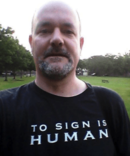
"The signularity is near: The future of signed language in Scotland"
Graham H. Turner joined the Department of Languages and Intercultural Studies at Heriot-Watt University as Professor and Director of the Centre for Translation & Interpreting Studies in Scotland in October 2005.
Graham's research focuses on language in society, with special reference to interpreting studies and to British Sign Language (BSL). In well over 200 publications and presentations over the last 30 years, supported by ESF, ESRC, AHRC, Leverhulme and many others, he has pursued issues of social and applied linguistics centred upon the nature of signed language, and the linguistic identity of its users. He instigated and edited the journals Deaf Worlds and The Sign Language Translator & Interpreter and two groundbreaking Deaf Nation Symposia. Sign language policy and planning have been a sustained focus of interest throughout. From his first published output in 1994, Graham has explored key questions regarding optimising the protection and promotion of signing communities, and the significance of language for Deaf citizenship.
The Scottish Parliament passed its BSL (Scotland) Act in 2015, and Graham was prominently involved in advising on the development of the Act across the preceding decade. He undertook a public engagement secondment to Scotland's Futures Forum, was frequently consulted by the Scottish Government and Parliament, and gave invited evidence to parliamentary committees on Education and Culture. In subsequent work, Graham has contributed to delivery of numerous aspects of Scotland's National Plan for BSL, including leading a Scottish Government project pioneering a new approach to public service interpreting with the National Health Service and Police Scotland; devising a national blueprint for the promotion of BSL in schools and society through language skills awards, developed with the Scottish Qualifications Authority; reviewing national census processes with the Office for National Statistics and National Records Scotland, and fostering community participation in order to capture credible data on signing populations; and facilitating an extensive process of dialogue in the Scottish Parliament to invigorate new conceptions of citizenship and democratic representation of BSL signers.
Sarah van Eyndhoven
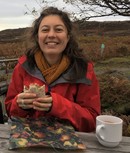
I am a linguistics PhD student at the University of Edinburgh, my main research interests are 18th century written Scots, historical sociolinguistics, and the interactions between language, politics and identity among the ruling families of Scotland in 1700. I am interested in how aspects of diachronic variation and change observed in historical varieties and settings may have been influenced by their ties to major political events in history, and how those events in turn shape an individual's choice to accommodate more or less towards their interlocutor in relation to their political, religious and social standpoint. My current research is focussed on the use of written Scots during the Union debates of 1689-1707, at a time when it had all but disappeared from most genres. This involves collecting and digitising the correspondence produced by Scotland's leading political families of the time, and tagging instances of Scots orthography and lexis, to investigate inter- and intra-writer the factors influencing any variation observed.
Andreas Weilinghoff
Andrea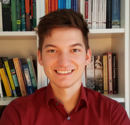 s Weilinghoff has studied English philology and Geography at the University of Münster. He is now a research assistant and PhD student in English linguistics at TU Dortmund University (Chair of Prof. Sarah Buschfeld). He is also an affiliated researcher at the University of Glasgow (Chair of Prof. Jane Stuart-Smith). In his PhD thesis, he is investigating vowel length patterns in Standard Scottish English (Aitken’s Law / SVLR) using various data sources. Other research interests include sociophonetics, forced alignment and ASR technology. More information can be found on his personal website: https://andreas-weilinghoff.com/
s Weilinghoff has studied English philology and Geography at the University of Münster. He is now a research assistant and PhD student in English linguistics at TU Dortmund University (Chair of Prof. Sarah Buschfeld). He is also an affiliated researcher at the University of Glasgow (Chair of Prof. Jane Stuart-Smith). In his PhD thesis, he is investigating vowel length patterns in Standard Scottish English (Aitken’s Law / SVLR) using various data sources. Other research interests include sociophonetics, forced alignment and ASR technology. More information can be found on his personal website: https://andreas-weilinghoff.com/

